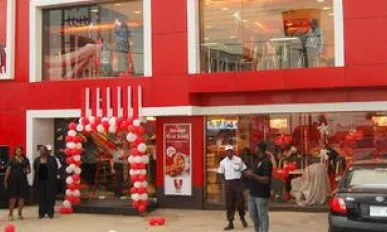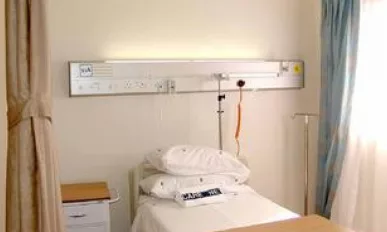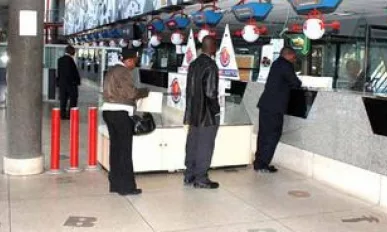Issue 03
Autohaus Windhoek : Wheeling Ahead
Volkswagen, Germany’s biggest carmaker, has been leaving rivals in the dust. Africa Outlook talks to JP Pretorius, Dealer Principal and Director of Autohaus Windhoek, the only distributor of the whole Volkswagen range in Namibia.
Swakop Uranium : The World’s Third Largest Uranium Deposit
Swakop Uranium has started developing the $2.5 billion Husab mine near Swakopmund, the third-largest known primary uranium deposit on the planet.
Cardno BEC : Seeking Expansion into Africa
Africa is undergoing a period of unprecedented economic growth and this represents huge opportunity says Bruce Johnson, Area Manager/ Manager New Projects, Cardno BEC.
Paradigm Project Management : Paradigm Shift
Is South Africa losing its status as the gateway to Africa? Not if Gauteng-based multidisciplinary mining consultancy Paradigm Project Management is anything to go by. Africa Outlook talks to Jeremy Clarke.
Ekurhuleni Municipality : Set for Take-Off
Key to the 2055 Growth and Development Strategy for Ekurhuleni Municipality is the aerotropolis masterplan. Africa Outlook has a look at the proposals.
Olam Mozambique : Crafting Roller Cotton Gin
Olam International, a leading global integrated supply chain manager and processor of agricultural products and food ingredients, has started construction of its first state- of-the-art roller cotton gin in Mozambique.
Ingram Micro Mobility : Brightpoint Rebranded
Earlier this year BrightPoint was rebranded Ingram Micro Mobility. Africa Outlook learns more.
Feltex Automotive : King of the Trim
Africa Outlook profiles Feltex Automotive a leading supplier of a wide range of quality automotive acoustic, comfort and trim components.
ADB Airfield Solutions : Taking to the Skies
As Africa continues to grow, so do its airports. ADB Airfield Solutions Southern Africa’s CEO Manfred Oettl tells us more.
AON Benfield : Why Reinsurance?
AON Benfield is the global reinsurance intermediary and capital advisor of worldwide insurance, reinsurance and risk management specialist AON plc. Basically, it provides balance sheet protection to insurance and reinsurance companies.
Murray & Dickson Construction : 30 Not Out
In its 30 years of existence, Murray & Dickson Construction has undertaken building projects from shopping centres to university buildings.
Eigenbau : Engineering Success
Africa Outlook talks to Derek Weston, the General Manager of Sandton-based civil engineering contractor Eigenbau.
National Real Estate : Keeping it in the Family
National Real Estate in Bloemfontein currently manages over 12,000 residential properties in both the sectional title and property rental portfolios. It also manages more than 1,200 commercial properties and offers insurance services.
KFC Sub-Saharan Africa : Unlocking Africa
As the KFC brand continues to expand further across Africa, Africa Outlook talks to Bruce Layzell, KFC general manager for new African markets.
Sundry Foods Limited : What a Catch
Nigeria’s Sundry Foods is targeting growth in the quick service industry through its restaurant brand Kilimanjaro and recently launched seafood chain Coral Blue Seafood Restaurant.
Hutz Medical : African Health Solutions
Hutz Medical has become synonymous with high quality hospital equipment and is aiming to take advantage of growth opportunities at home in South Africa and across the African continent.
Zimpost : First Past the Post
As Zimbabwe postal company Zimpost continues to evolve we speak to Managing Director Douglas Zimbango about a $5 million upgrading project aimed at modernising its business methods.
Secequip : Trustworthy and Reliable
South Africa’s notoriously high crime rate is recognised across the world and it presents huge opportunities for firms like Secequip.




















